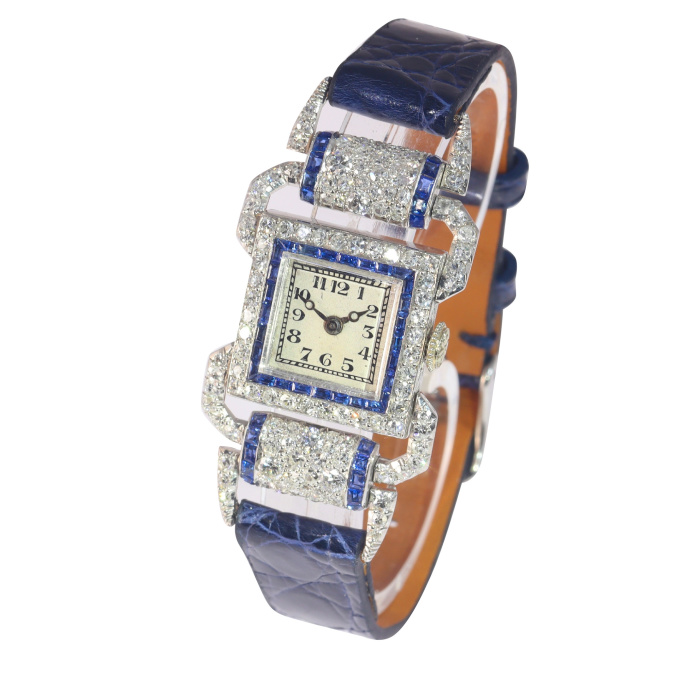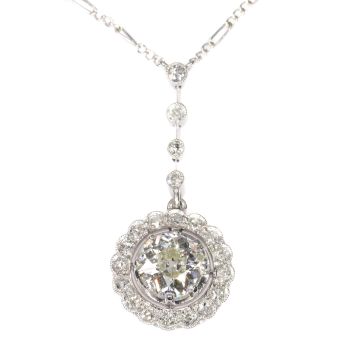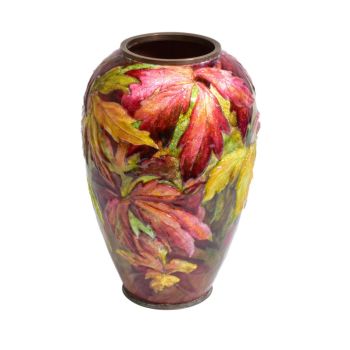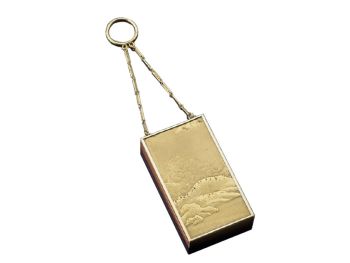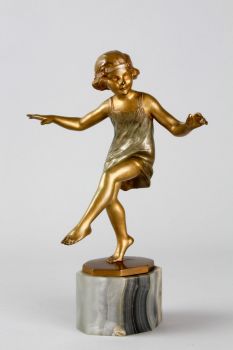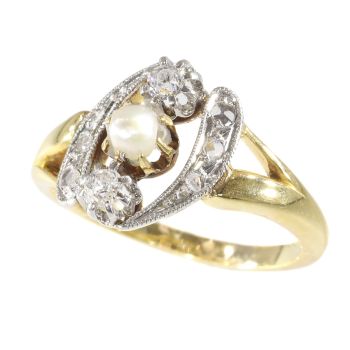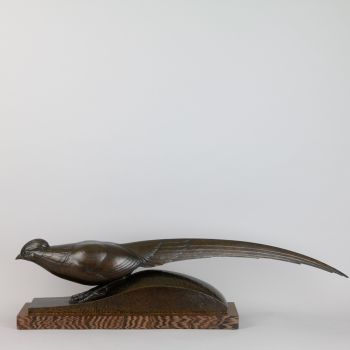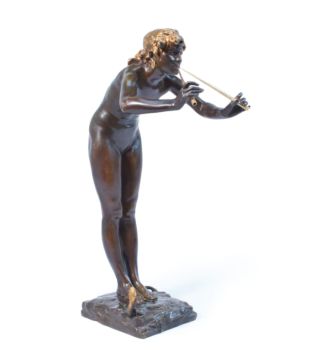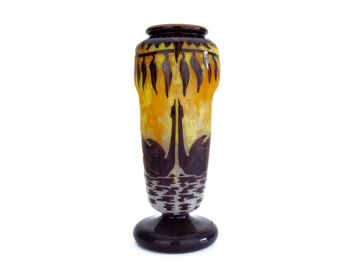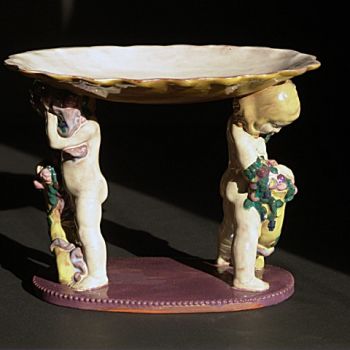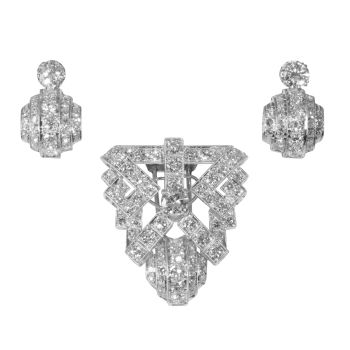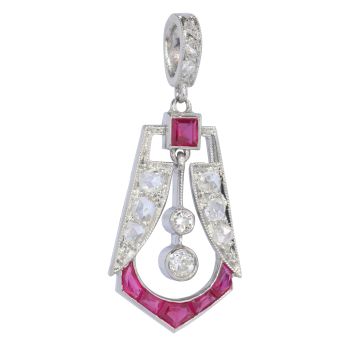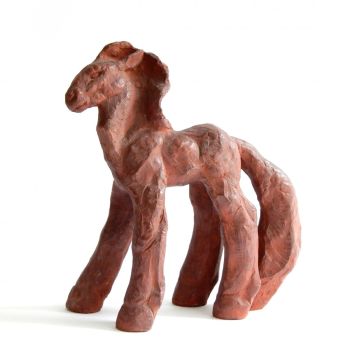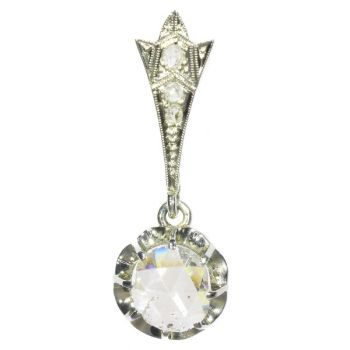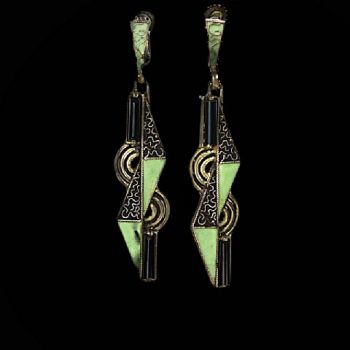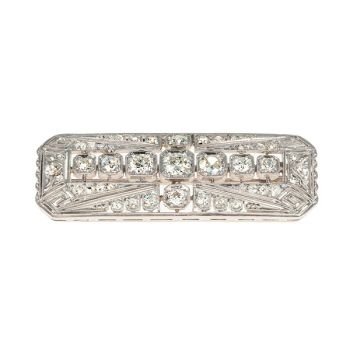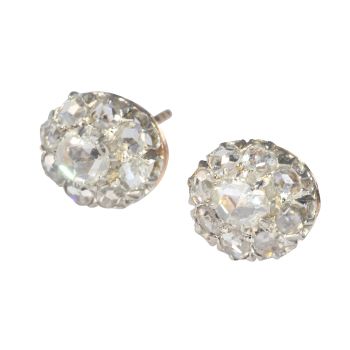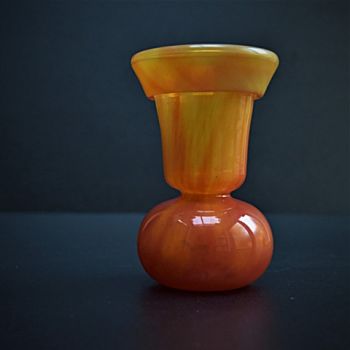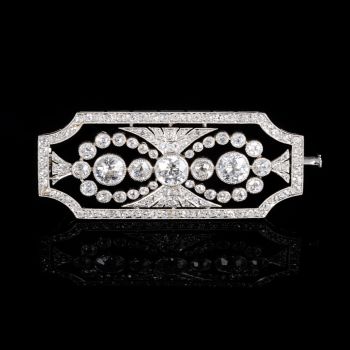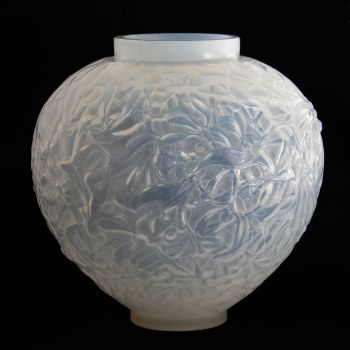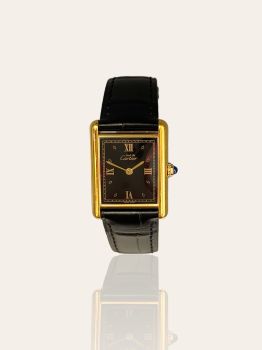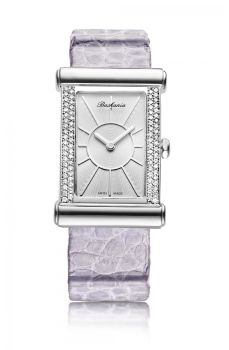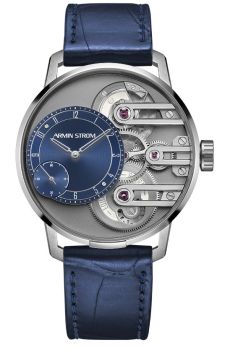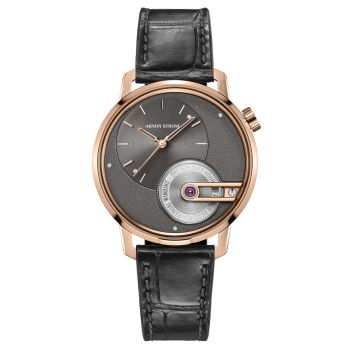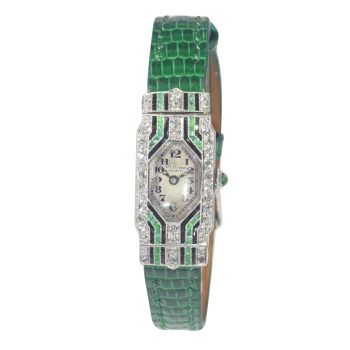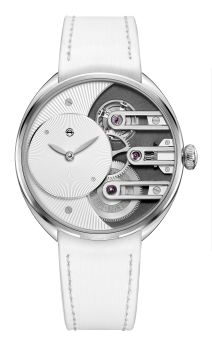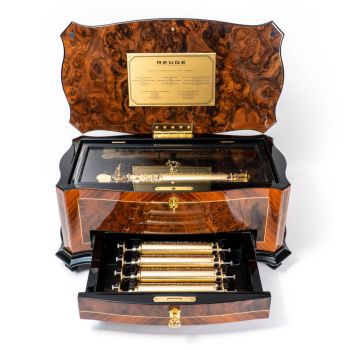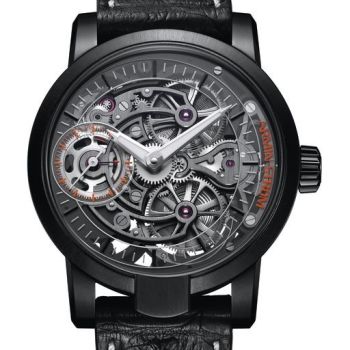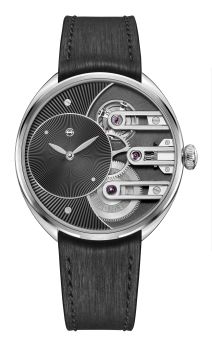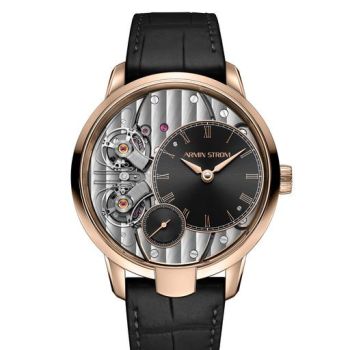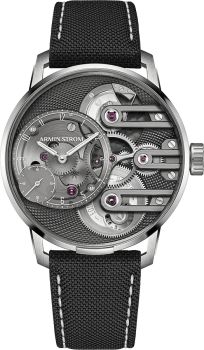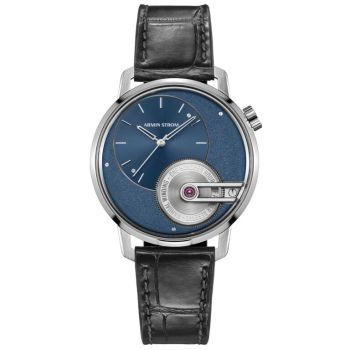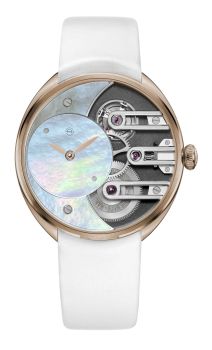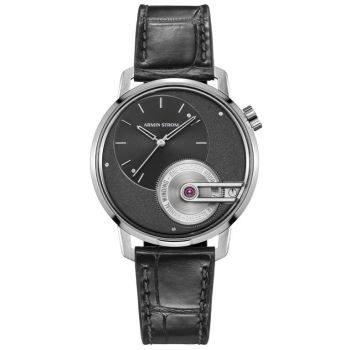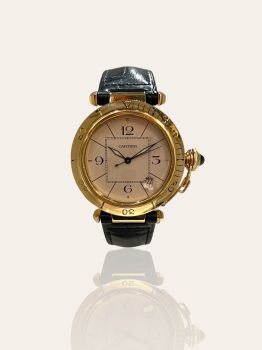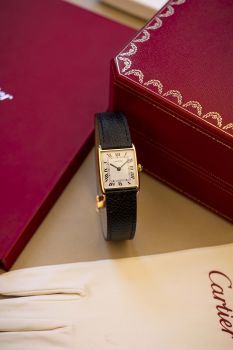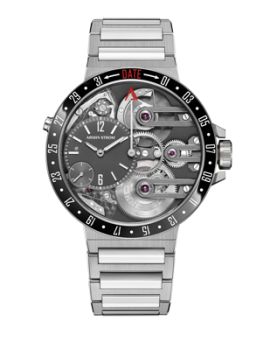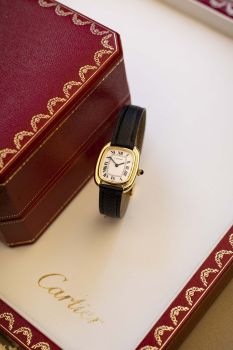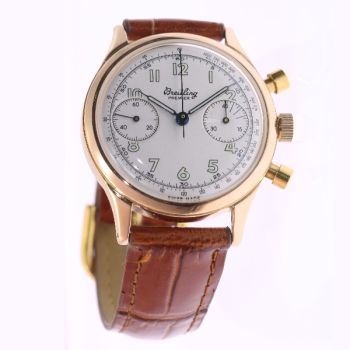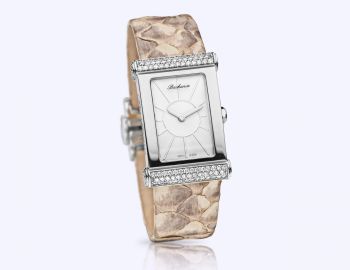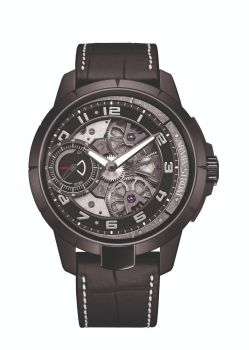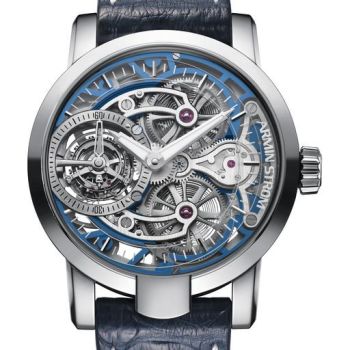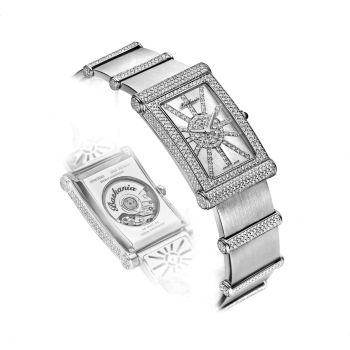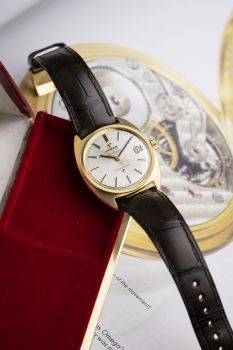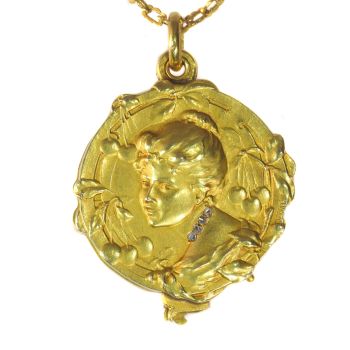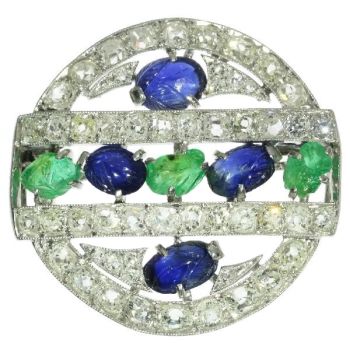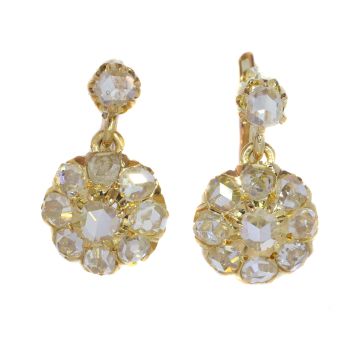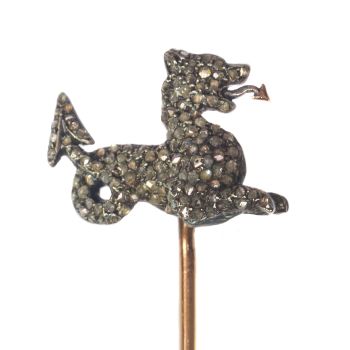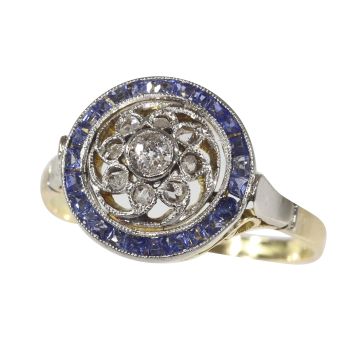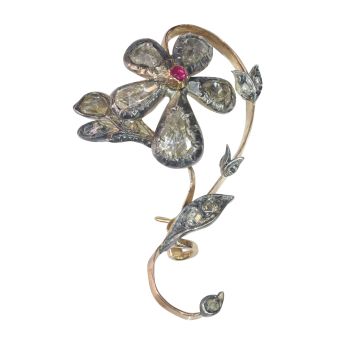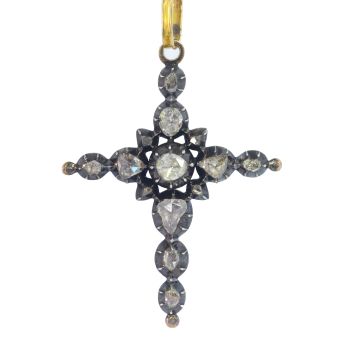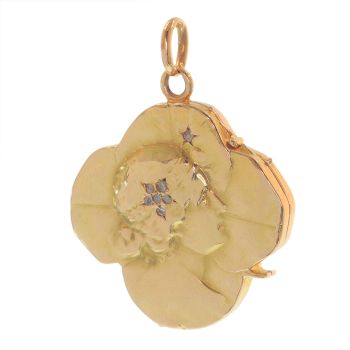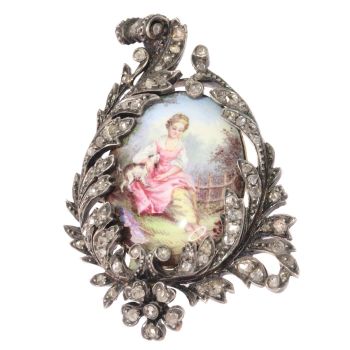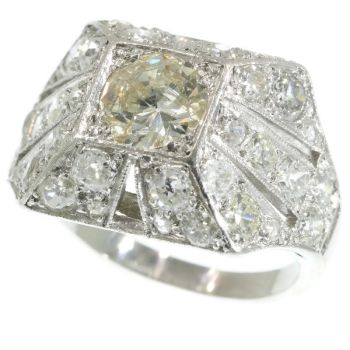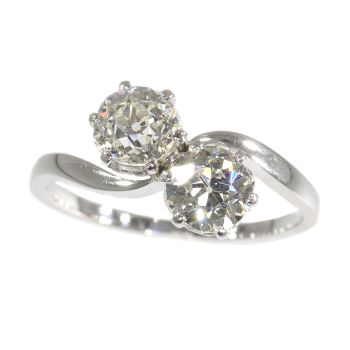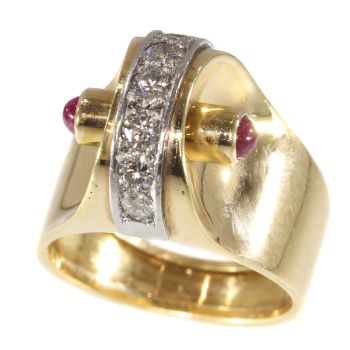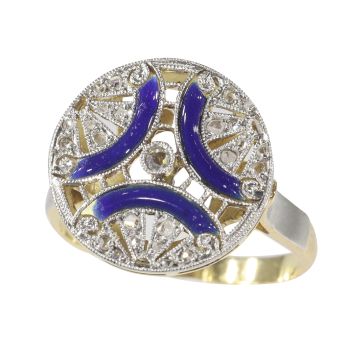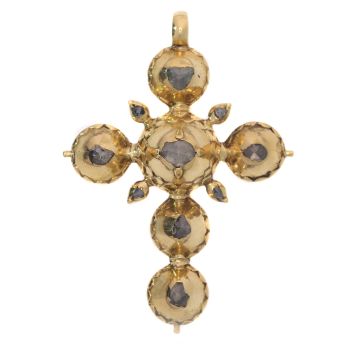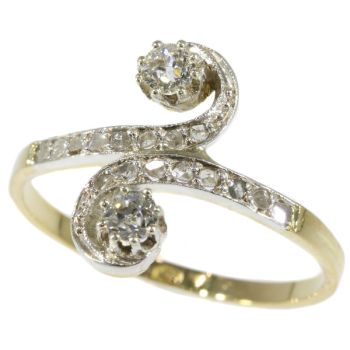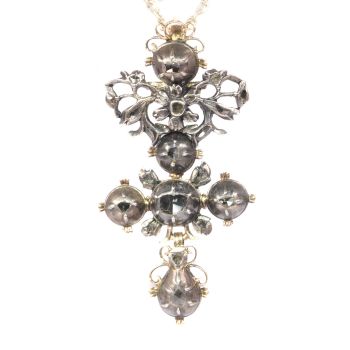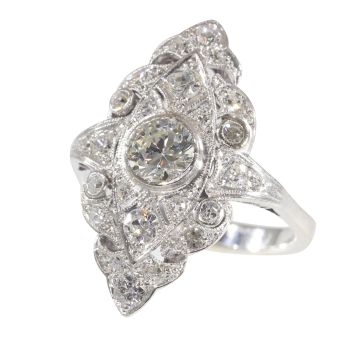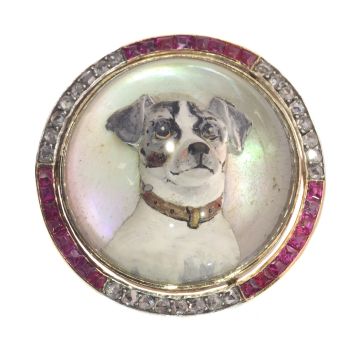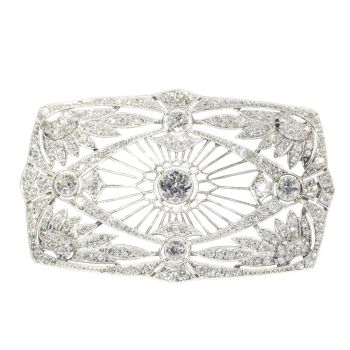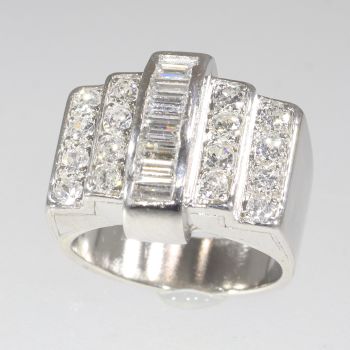Vintage Art Deco platinum ladies wrist watch made by Leon Hatot set with diamonds and sapphires 1920
Leon Hatot
DiamantSaffierEdelsteenPlatina
Momenteel niet beschikbaar via Gallerease
- Over kunstwerk
Antique jewelry object group
ladies wrist watch
Condition
very good condition
more info on our condition scale
Country of origin
France
Style
Art Deco - Art Deco is an eclectic artistic and design style which had its origins in Paris in the first decades of the 20th century. The style originated in the 1920s and continued to be employed until after World War II. The term "art deco" first sawwide use after an exhibition in 1966, referring to the 1925 Exposition Internationale des Arts Décoratifs et Industriels Modernes that was the culmination of high-end style modern in Paris. Led by the best designers in the decorative arts such asfashion, and interior design, Art Deco affected all areas of design throughout the 1920s and 1930s, including architecture and industrial design, as well as the visual arts such as painting, the graphic arts and film. At the time, this style was seen aselegant, glamorous, functional and modern.
See also: Art Deco
more info on styles
Style specifics
Abstract motives and geometrical forms are quite typical for the Art Deco period. Art Deco moved away from the soft pastels and organic forms of its style predecessor, Art Nouveau, and embraced influences from many different styles and movements of the early 20th century, including Neoclassical, Constructivism, Cubism, Modernism,and Futurism. Its popularity peaked in Europe during the Roaring Twenties and continued strongly in the United States through the 1930s. Although many design movements have political or philosophical roots or intentions, Art Deco was purelydecorative.
Period
ca. 1920
Events & facts of this era, poetry of this era, fashion of this era.
Material
platinum (touchstone tested)
more info on precious metals
Extra information
Leon Hatot (1883-1953) Started in 1911, bought the atelier of Brédillard in Paris and was supplier to the important jewellery houses in quartier Vendôme and of René-Boivin.
Diamonds
Six old brilliant cut with an estimated weight of ± 0.48ct
112 single brilliant cut diamonds (also called 8/8)with an estimated weight of ± 2.00ct
Total diamond count
118 pcs.
Total diamond weight
approx. 2.48 crt with an average colour and clarity F/J, vs/i
All diamond weights, color grades and clarity are approximate since stones are not removed from their mounts to preserve the integrity of the setting.
All diamonds we offer are screened by the I.J.G.C. for whether they are natural or synthetic, and all diamonds in this jewel are 100% guaranteed to be natural.
Precious stones
48 sapphires
It is a very common practice to treat gemstones to intensify their clarity or colour. The item in question has not been tested in this regard.
Birthstones
Diamond is the birthstone (or month stone) for April and sapphire for September.
more info on birthstones
Hallmarks
Mastermark LH for Leon Hatot and the French control mark for platinum representing a dog's head that was in use in France from about 1912.
more info on hallmarks
Dimensions
width case 2,30 cm (0,91 inch)
see picture with a ruler in millimeters and inches
Weight
22,00 gram (14,15 dwt)
- Over kunstenaar
Léon Hatot (1883 – 1953) was een gedreven ondernemer: inventief, innovatief en vooral vooruitstrevend. Een kind van zijn tijd eigenlijk, die gefascineerd was door het toepassen van de nieuwste materialen en technieken.
Ondernemer én goudsmid Léon Hatot bezocht van 1895 tot 1898 de École d’horlogerie in Besançon en daarna de École des Beaux Arts, eveneens in Besançon. Op zeer jonge leeftijd vestigde hij zich in Besançon in 1905 als zelfstandig ondernemer en specialiseerde zich in het graveren van uurwerkbehuizingen.
Al snel richtte hij eveneens in Parijs een werkplaats voor klokkenmakers- en juwelierskunst op. Hier vervaardigde hij, bijgestaan door een groot aantal ambachtslieden, klokken van hoge kwaliteit, waarbij hij gebruik maakte van bijzondere edelmetalen. Hatot was in die tijd een van de weinigen die zowel horloges als sieraden vervaardigde. Hij leverde die aan de belangrijkste handelshuizen in Rue de la Paix in Parijs.
Nieuwsgierig en met de blik op de toekomst gericht raakt Hatot al gauw geïnteresseerd in de toepassing van elektriciteit in uurwerken. Dit resulteert in 1920 in de oprichting van een afdeling die zich met het onderzoek naar en de ontwikkeling van batterij-aangedreven uurwerken moet gaan bezighouden. Sinds 1923 worden de elektrische klokken van Hatot onder de merknaam ATO verkocht vanuit de vestigingen in Parijs en Besançon.
Vanaf het moment dat deze uurwerken op de markt verschenen, waren ze een doorslaand succes. Tijdens de ‘Exposition international des arts décoratifs’ wordt Hatot een ‘Grand Prix’ voor zijn hele programma elektrische klokken toegekend. Kenmerkend voor zijn modellen was dat die waren vervat in kasten van marmer, verchroomd metaal, verfijnde houtsoorten of bewerkt glas afkomstig uit de beroemde fabrieken van Lalique.
Vanwege de decoratieve vormgeving van deze uurwerken weet Hatot in de klokkenwereld een naam te vestigen als ‘meester van de Art Décoperiode’. Ook zijn bijdrage in de wetenschappelijke wereld is groot. Dankzij zijn creatieve en visionaire geest en zijn talrijke uitvindingen weet Hatot tot en met het tweede kwart van de twintigste eeuw de ontwikkelingen op klokkengebied op een hoger plan te brengen. Frankrijk beloont hem hiervoor met de hoogste nationale onderscheiding, de ‘Légion d’Honneur’.
In 1931 presenteerde Léon Hatot tijdens de Colonial Exhibition in Parijs een serie compacte elektrische klokken die het begin markeerden van een nieuwe generatie decoratieve uurwerken. Hij brak daarbij volledig met de gangbare traditie waarbij de kasten als decoratie dienden en maakte van het uurwerk zelf de blikvanger. Zo werd Hatot trendsetter voor een nieuwe modieuze stroming.
Artwork details
Related artworks
Onbekende Kunstenaar
Vroege Art Deco broche1920
Prijs op aanvraagAns Hemke-Kuilboer Juwelier & Antiquair
1 - 4 / 24Armin Strom
Armin Strom Lady Beat "Manufacture Edition White"2022 - 2023
Prijs op aanvraagHa-Juweliers
Armin Strom
Armin Strom Lady Beat "Manufacture Edition Black"2022 - 2023
Prijs op aanvraagHa-Juweliers
Armin Strom
Armin Strom "Gravity Equal Force Ultimate Sapphire"2022 - 2023
Prijs op aanvraagHa-Juweliers
Armin Strom
Armin Strom "Tribute 1 Stainless Steel Blue Dial"2022 - 2023
Prijs op aanvraagHa-Juweliers
Armin Strom
Armin Strom "Lady Beat Rosé Gold Mother of Pearl"2022 - 2023
Prijs op aanvraagHa-Juweliers
1 - 4 / 24- 1 - 4 / 24

